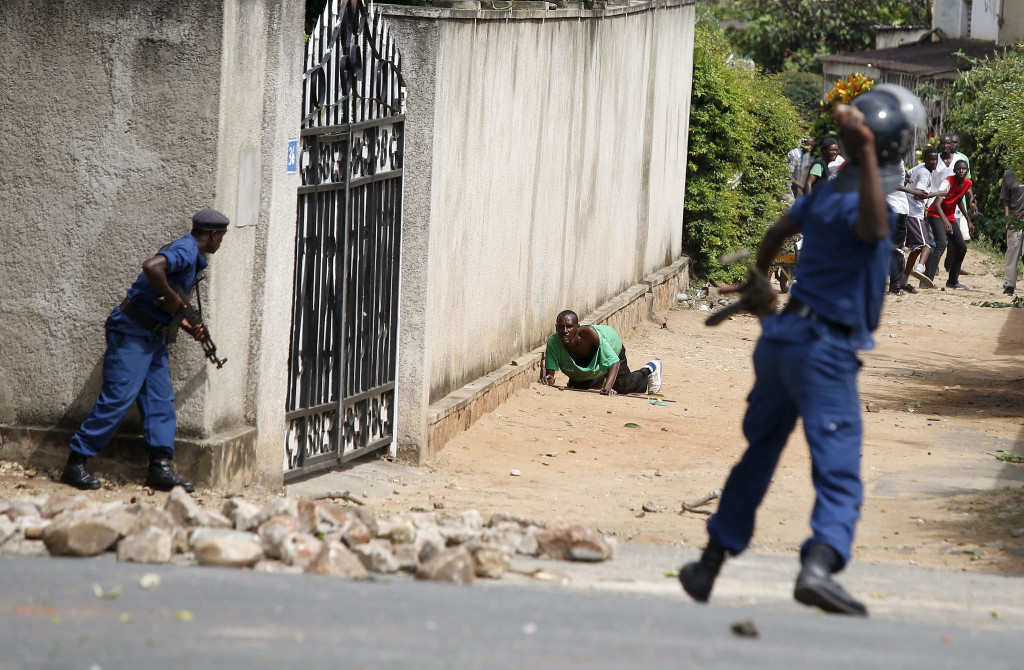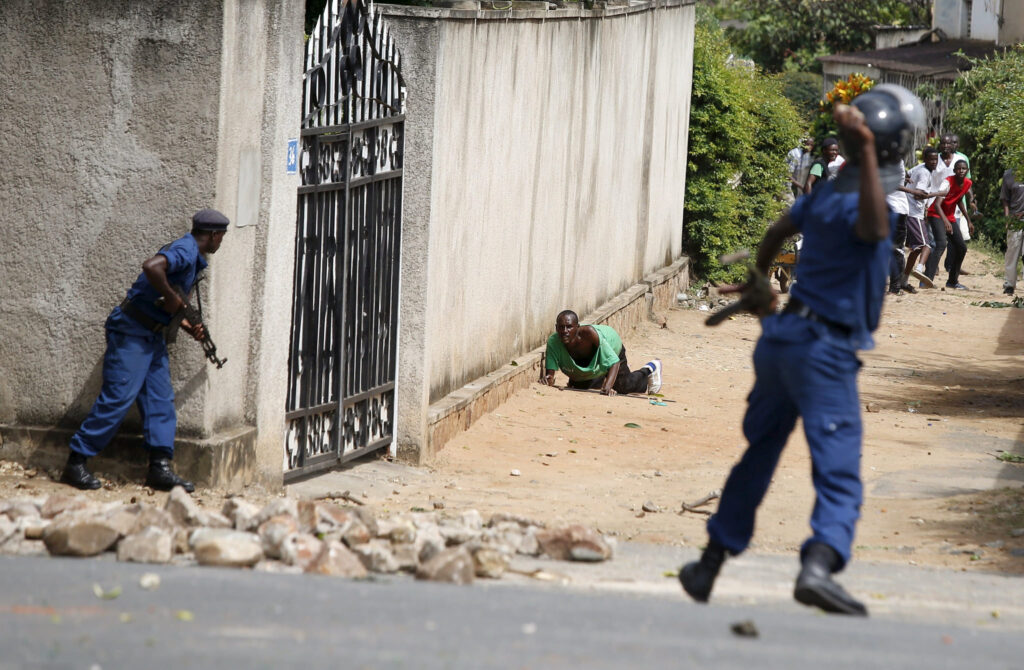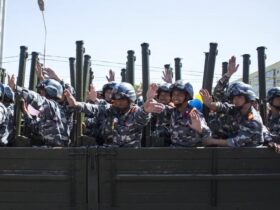
Burundi faces the worst economic and political crisis that it has seen since the 1993-2005 Civil War. Ironically, while that war ended with a new constitution and the peaceful parliamentary appointment of President Pierre Nkurunziza, the current unrest has been sparked by his controversial decision to seek a third term. The increasingly violent political upheaval coupled with a faltering economy leaves a worrying picture for this small East African state.
At the end of the Civil War – in which the minority Tutsi-dominated army and the mainly Hutu rebel groups (much like in Rwanda) killed over 300,000 people – the Arusha Peace and Reconciliation Agreement was signed, the Hutu CNDD-FDD rebel group was publicly elected and its leader, Nkurunziza, was appointed by the parliament. Since then, the generally popular Nkurunziza has led Burundi through 10 years of stable economic growth and peace.
In April of 2015, following several other African leaders who staged “constitutional coups” at the end of their terms and then brutally silenced their opposition, President Nkurunziza announced his decision to run for a third term in office. This began a series of violent political protests, with many Burundians considering the decision an affront to the Arusha Agreement, which imposes a two-term limit on the president. This agreement symbolizes peace and democracy, and Nkurunziza’s opposition interprets its violation as a regression back to Burundi’s violent and oppressive past.
During more than two months of protests, the pro-Nkurunziza government cracked down on demonstrators and opponents leaving hundreds jailed, 200 killed and 200,000 displaced after fleeing the country. It also disabled the country’s internet and telephone network. In May, Nkurunziza’s political opponents attempted to overthrow the government during his trip to Tanzania for the East African Community (EAC) summit. Opposition parties boycotted the official election in July, and violent outbreaks – including gunmen firing rocket-propelled grenades and machine guns – still continue in the capital city, Bujumbura.
There are three main consequences of the political tension within Burundi. First, the conflict has spilled over to the EAC. Composed of Burundi, Kenya, Rwanda, Tanzania and Uganda, the EAC has tacitly approved of the controversial third term and provided Nkurunziza with regional support, stating that he is not violating Burundi’s constitution because he was appointed, not elected, in his first term. However, this mainly economic alliance now faces several challenges: the conflict has blocked trade routes through Bujumbura that it wants to develop, and donors are voicing concerns about the inclusion of Burundi, threatening the success of several key infrastructure projects.
Second, there have been numerous warnings that Burundi’s political violence could have serious humanitarian impacts across the Great Lakes region in East Africa. There are predictions that up to 250,000 more Burundians will need humanitarian assistance in the next six months, putting significant strain on host countries. There are also mounting fears that the violence happening in the capital city will spread and potentially draw in neighboring states—Burundi has already accused Rwanda of providing support to its opponents. Some take this further and see it as the beginnings of another ethnically fueled war. This seems misplaced, however, considering that Nkurunziza’s opposition is diverse and politically motivated.
Third, in light of potential human rights abuses caused by the political upheaval, multiple blows have been dealt to the Burundian economy:
- The African Union (AU) has imposed sanctions on the country and called for an investigative report
- The UN has condemned the violence, leading member states to reconsider their aid
- US President Obama terminated Burundi’s status as a recipient of the US African Growth and Opportunity Act
- The World Bank has noted that because of the political uncertainty and an overall risk rating of “substantial”, they cannot agree to any infrastructure projects
Foreign aid accounts for 50% of Burundi’s state budget and almost every large donor has withdrawn or is reconsidering their assistance on the grounds of failure to respect human rights, democracy and the rule of law. In total, western countries (led by the EU, US, Belgium and the Netherlands) have withdrawn over $190 million in aid to try and get President Nkurunziza to negotiate with his opposition. To make matters worse, displaced farmers and disrupted transportation networks have created trouble for one of Burundi’s key exports, coffee.
The country’s economy – already the second poorest in the world – is on the path to collapse. The World Bank predicts a contraction of 2.3% in 2015 (and the IMF a gloomier 7.2%) after nearly a decade of steady economic performance. With no stable financial base to support Nkurunziza’s government, chances are the political tensions and human rights issues will only be exacerbated.
It appears that the best way to remedy the economic situation is to create a viable solution to the political one. But, if withdrawing 50% of Burundi’s state budget has not motivated progress towards one, it remains unclear what will. Many look to the UN, but it has once again proven incapable of unified action. The ICC, another avenue, has grounds to establish preliminary examinations into human rights abuses, but would take far too long to execute those processes. Finally, the AU has stated that it would stage an intervention if the situation worsens, but ideally a solution would be reached long before the violence warrants that kind of action.
Given the situation, why have sanctions and a failing economy not motivated Nkurunziza to sit down with his opponents? Perhaps he feels that he has a political safety net, considering that the EAC has approved of his third term and the AU isn’t likely to do more than enforce their sanctions. It appears that the stability of Nkurunziza’s presidency is more important to him than Burundi’s economic situation. Although the argument is easily made that the two are inherently tied together, the lack of a reaction from Nkurunziza demonstrates that he has different calculations. More sanctions from the international community might only increase the violence and hurt Burundian people.
Consequently, this issue must be dealt with on a regional level in political terms. If the EAC and AU were to freeze Burundi’s participation in all future dealings until a compromise was reached, undoubtedly Nkurunziza would sit down with his opposition to discuss solutions. The authority of his presidency is partially reliant on the alliances that give Burundi, a small and relatively powerless country on its own, leverage in Africa and a voice in the international community. Nkurunziza cannot risk being estranged from his neighbors.
Regardless of what happens, this much can be said: without any external intervention, Burundi’s disintegrating political and economic foundations could turn into a much larger – and much trickier – problem for the Great Lakes area.
The views expressed by the author do not necessarily reflect those of the Glimpse from the Globe staff, editors or governors.







